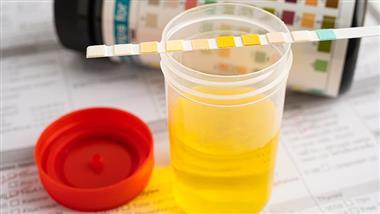Have you ever noticed a strong or unusual odor when you use the restroom? While it might seem like a small detail, the color and smell of your urine can reveal a lot about your health. Paying attention to these subtle changes can help you catch potential issues early and take steps to improve your well-being.
What’s Normal?
Normal urine is mostly water—about 91% to 96%. It should have a light, pale yellow color and only a mild odor. Changes in these characteristics can signal underlying health conditions or the effects of your diet and hydration habits.
Common Signs of Concern:
• Dark urine: Often a sign of dehydration or an indicator of liver problems.
• Strong-smelling urine: Can be linked to certain foods, medications, or health issues like urinary tract infections (UTIs) or diabetes.
• Sweet-smelling urine: Could indicate diabetes or high blood sugar levels.
Causes of Unusual Urine Odor
1. Dehydration
When you’re not drinking enough water, your urine becomes more concentrated, resulting in a darker color and stronger smell. Staying hydrated helps flush out toxins and maintain proper kidney function.
2. Certain Foods
Foods like asparagus, coffee, garlic, and onions are well-known for altering the smell of urine. These effects are usually harmless and temporary.
3. Medications and Supplements
Some medications, like antibiotics or vitamin B supplements, can give urine an unusual smell.
4. Urinary Tract Infections (UTIs)
A strong, unpleasant odor accompanied by cloudy urine, burning, or discomfort could indicate a UTI.
5. Diabetes
Uncontrolled diabetes can lead to sweet-smelling urine, a result of excess sugar being excreted.
6. Kidney Problems
Persistent foul odors may indicate kidney infections or other kidney-related issues.
Hydration: The Real Story
The “eight glasses of water daily” rule is widely quoted but lacks a solid scientific basis. Instead:
• Use thirst and urine color as your hydration guide. Aim for a pale yellow color, which indicates you’re well-hydrated.
• Don’t overhydrate, as this can dilute electrolytes and affect your overall health.
Proper hydration supports not only your kidneys but also your entire body, from digestion to skin health.
Urinary Tract Infections: Prevention Tips
UTIs affect millions each year, especially women. Prevention is key:
• Stay Hydrated: Drinking enough water helps flush out bacteria.
• Practice Good Hygiene: Always wipe front to back and avoid harsh soaps in the genital area.
• Eat Beneficial Foods: Cranberries contain compounds that prevent bacteria from adhering to the urinary tract. Consider cranberry juice or supplements as part of your routine.
Kidney Stones and Diet
High-oxalate foods like spinach, almonds, and peanut butter can contribute to kidney stone formation. If you’re prone to kidney stones:
• Limit high-oxalate foods temporarily.
• Reduce collagen-rich proteins, which can increase calcium oxalate levels.
• Stay hydrated to dilute oxalates and support kidney health.
When to Seek Medical Advice
Changes in urine odor, color, or frequency are often harmless and temporary. However, consult a healthcare professional if you notice:
• Persistent strong or foul odors.
• Blood in your urine.
• Painful urination or other symptoms of infection.
• Sweet-smelling urine, as it could indicate diabetes.
The Bottom Line
Your urine is more than just waste—it’s a reflection of your health. By paying attention to its color and smell, you can catch signs of dehydration, dietary imbalances, or more serious health concerns.
Simple Steps for Healthy Urine:
1. Stay hydrated and aim for pale yellow urine.
2. Balance your diet with low-oxalate and nutrient-rich foods.
3. Practice good hygiene and consider natural remedies like cranberries for UTI prevention.
4. Monitor changes and seek professional advice if needed.
For more tips on staying healthy and understanding your body’s signals, visit HealthFitnessPath.com often—your guide to a better, healthier life!

